
Protecting the health of Pacific people from climate change and environmental hazards
Overview
Climate change poses a significant threat to the health of Pacific people due to the region's unique geographic, cultural and socio-economic conditions.
Rising ocean temperatures contribute to the degradation of coral reefs, which support marine biodiversity and are essential for local livelihoods, nutrition, and cultural practices. More frequent and intense extreme weather events, like tropical cyclones and flooding, can cause injury or death, and destroy homes, crops, infrastructure and healthcare facilities.
Communities in this region face increased vulnerability to climate-sensitive vector-, food- and water-borne diseases such as malaria, dengue, lymphatic filariasis, leptospirosis, and ciguatera fish poisoning. For example, heavy rain can result in flooding and an opportunity for disease-carrying mosquitoes to breed, driving up cases among the public.
Rising sea levels and storm surges can result in food and water insecurity as freshwater supplies become scarce and agricultural productivity declines. The mental health impacts of climate-related displacement and loss of traditional lands further intensify the overall health burden.
Climate change makes existing health risks worse, while undermining and potentially reversing decades of health progress. For example, the Pacific has high rates of communicable diseases and noncommunicable diseases (NCDs) which are exacerbated by climate change. The increased health burden of climate change affects communities, as well as the ability of the health system to effectively deliver quality care and services.
WHO’s work in the Pacific
WHO is working with Pacific islands and areas (PICs) and their partners to advance climate change adaptation and mitigation actions. Adaptation is action to help people adjust to the current and future effects of climate change. Mitigation is action to reduce greenhouse gas emissions that cause climate change.
The WHO Division of Pacific Technical Support (DPS) collaborates with governments and partners to prepare for and reduce the health impacts of climate change through:
- building capacity to assess and respond to climate change and environmental health risks;
- conducting vulnerability and adaptation assessments (V&As) to better understand climate-related health risks and impacts;
- supporting the development and implementation of strategies like Health-National Adaptation Plans (H-NAPs) to align health priorities with national climate adaptation plans;
- strengthening climate resilience and promoting low-carbon health systems; and
- advocating for joint climate-health action across sectors.
There are several initiatives guiding climate change and health in the Pacific. At the 15th Pacific Health Ministers Meeting held in the Kingdom of Tonga in 2024 governments reaffirmed their commitment to the Healthy Islands vision, first agreed in 1995, and on effective climate-health action. WHO is supporting its Member States to implement the Pacific Islands Action Plan on Climate Change and Health which was launched under the WHO Special Initiative on Climate change and Health in Small Islands Developing States (SIDS) in 2018. The vision of the action plan is that by 2030, all health systems in SIDS will be resilient to climate variability and change.
The new Pacific Islands Multi-country Cooperation Strategy 2024-2029 or the MCCS, sets out WHO’s strategic path and medium-term support to PICs. Strengthening resilience to health threats, including climate change, is one of the three thematic priorities. The MCCS complements the WHO regional vision paper, Weaving Health for Families, Communities and Societies in the Western Pacific Region (2025-2029), which prioritizes climate-resilient health systems to ensure facilities are climate-ready, including having basic water and sanitation services.
Key facts
- The Pacific, despite being on the front lines of climate change, generates just 0.02% of global emissions.1
- Health-specific climate action remains underfunded globally, with only around 6% of adaptation funding and 0.5% of multilateral climate funding currently allocated to projects that protect or improve human health.2
- By 2050, climate change will likely cause an additional 14.5 million deaths and USD 12.5 trillion in economic losses worldwide.3
- The climate crisis is estimated to push 132 million people into extreme poverty by 2030, a third due to impacts of climate change on health.4


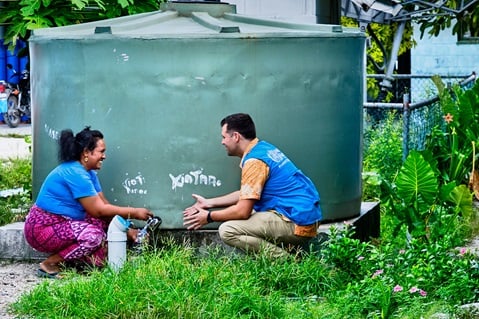
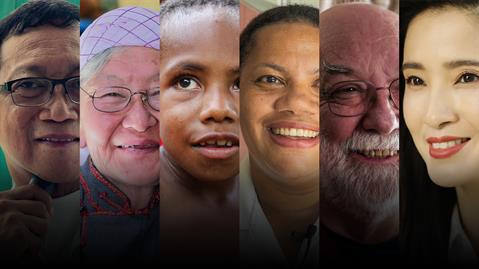
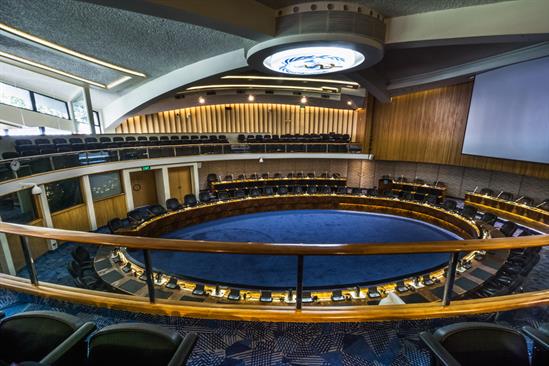
/countries/fiji/climate-health-focus-areas.png?sfvrsn=125edf45_1)
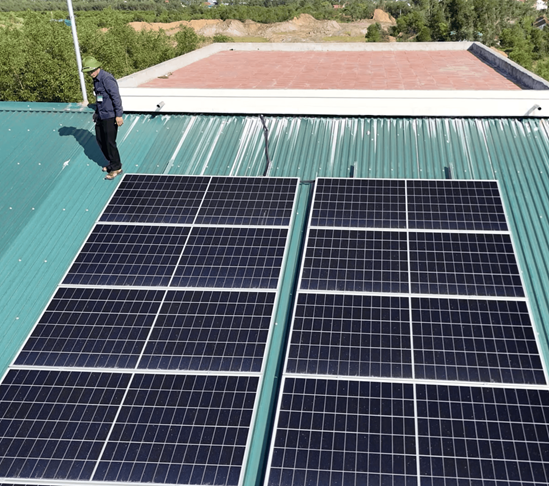
.tmb-549v.png?sfvrsn=ea8b741b_1)
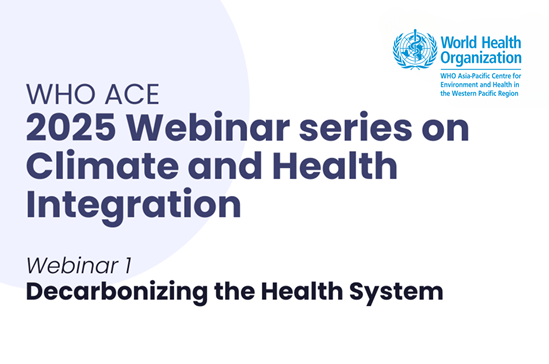

/countries/fiji/who_lomawai_-0534.jpg?sfvrsn=8e85ce67_5)
/countries/fiji/068881d2-cecc-4dcc-8ec7-000bfedf02c0_1_105_c.jpeg?sfvrsn=2d5ed07d_4)
